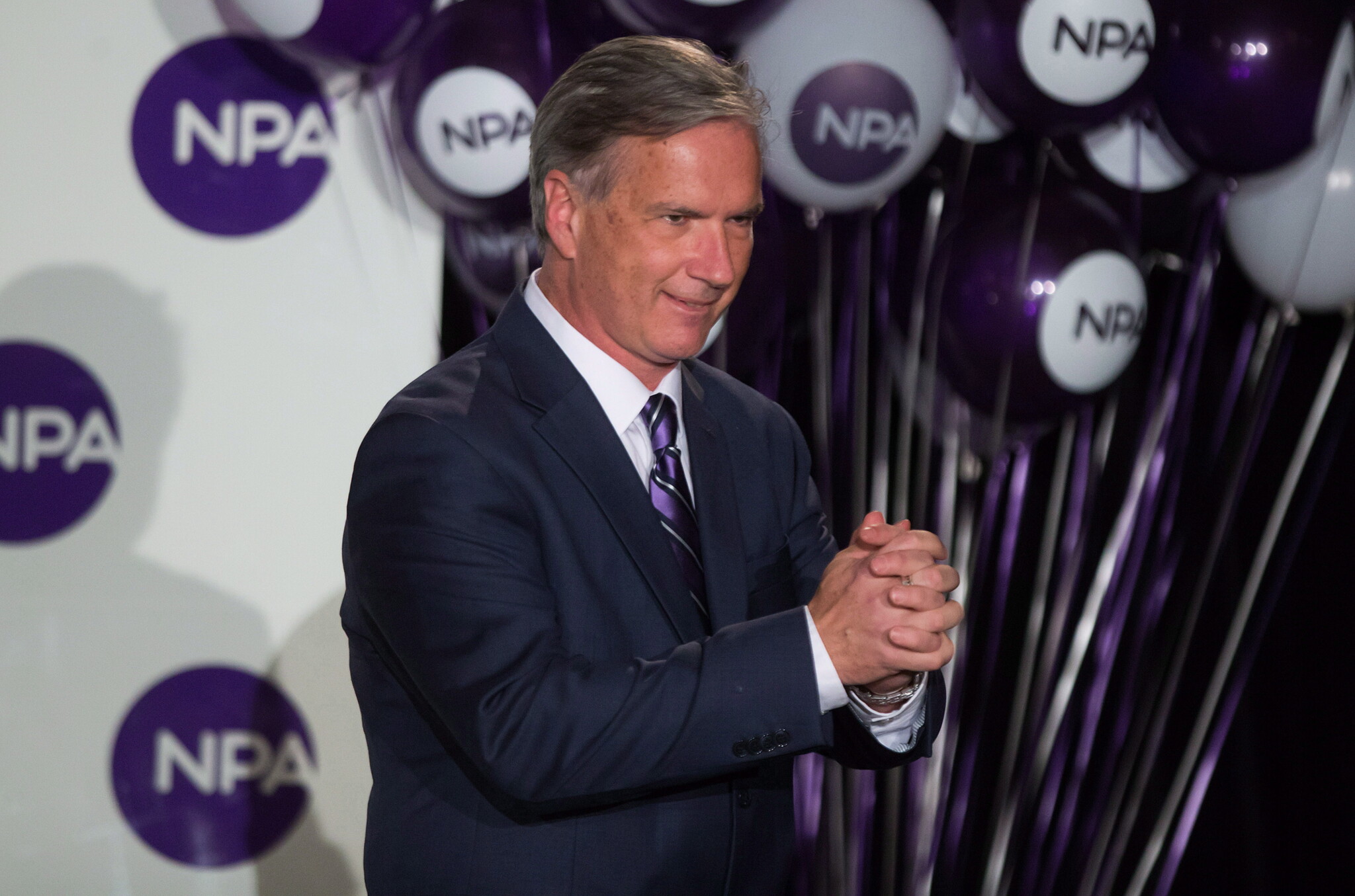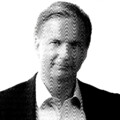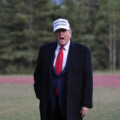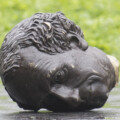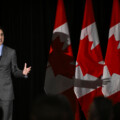My first, and last, campaign for public office started on a spring day with a beer and a burger and an unexpected invitation to run, and ended on election night 10 years ago Friday with a substantial amount of alcohol and a respectable runner-up loss for the Vancouver mayoralty.
My brief detour from what was then a 35-year journalism career surprised friends and family, baffled colleagues, intrigued the professionals, and at times still makes me scratch my head to fathom what the hell happened to me then. Nothing beyond a high school student council presidency suggested this was a career option.
Even in defeat, the lessons of the very experience of seeking office have proven useful as a calling card in my reporting (if simply with politicians as a fellow traveller) and shed light and shattered myths about public life and those in it. I made some friends for life, and my several enemies include people I’ve still never met—that being one of the lessons of putting yourself out there for public consumption.
You can scratch most of what you think you know about politics the very moment you enter the arena. Its system is a construct far more complex, with many more moving pieces, than a candidacy initially suggests. It is one part air war, one part ground war. Longer hours and longer conversations than you’d expect in days that are never yours to control. I’ve heard many aspiring politicians boast about being the underdog; they are not to be taken seriously—being the overdog, the incumbent, the person who knows the levers, is an immeasurably better position.
In my case, I was taking on a two-term telegenic mayor with a well-financed Vision Vancouver party machinery that had elected a majority of the council and captivated Vancouver’s voters with elaborate, even extra-territorial ambitions—to end homelessness, to be the greenest place on the planet, to stop an oil pipeline, to be a sanctuary city for immigrants. All ideas were far from municipal reach, but damn it if the illusory, aspirational agenda didn’t make Vancouverites proud and repeatedly vote for them. How do you defeat that manufactured fiction of a city’s responsibilities?
I earned the nomination for the rival Non-Partisan Association through a narrow party board process. I’ve said before that my naïve expectation was that I’d then walk into an adjacent room to a bustling organization fanatically at work, then a room of volunteers working the phones and nailing together signs, then a third room of cigar smoke and city fathers serenely counselling their high-net-worth friends to sign cheques for the campaign. But you find out there is no other room, and when the party president points to you across a boardroom table and says, “You are now the NPA,” he means it.
I was announced as the NPA candidate four months before election day. The second question at my news conference was in French. You’d think a LaPointe would have been a secure bet as French-speaking. Mais non. When I looked a bit stunned, the reporter asked if I spoke enough French to answer.
“Pas assez,” was my reply.
The whole campaign could feel some days like one big “not enough”—not enough time to strategize, not enough resources to eclipse the incumbent’s, not enough answers to the city’s metastasizing problems, and not enough experience to walk and talk like a mayor-in-waiting.
And walk and talk I did. I lost weight but somehow gained fat. I regularly was hoarse. My blood pressure provoked nosebleeds. The mayor and a councilor sued me for defamation. I got to see my name etched in fake blood on placards. Some of my journalist friends, including some I’d managed, treated me like a traitor and pretender. I was followed by a videographer from my opponent’s team, waiting for me to pick my nose. Told to speak more like an advertiser than a journalist, I made myself nauseous by repeating what we thought were clever lines for days and weeks on end. And while I’d always wanted to be on Hockey Night in Canada, I didn’t expect it would be in a between-periods attack ad by my opponent as I questioned a question and questioner at a news conference.
When afterward we tallied the events big and small—rallies, fundraisers, visits to offices and households to shake them down for money, lurking on street corners to shake hands with strangers, and the coffees and beers and stronger with my team of candidates—there had been about a half-dozen a day for three-plus months. I wrote my own speeches, mostly after a 15-hour day, and cheated my employer by vainly trying to squeeze in paid work.
For a time, it genuinely appeared I might win. Our overnight polling had me a point or two ahead about 10 days out from the vote, and the mayor’s team suddenly appeared the one in disarray.
I admit that the prospect of victory brings upon you no small fear, that your days of sitting on the sidelines and lobbing grenades are about to be replaced with you as the fresh target required to have answers for all things perplexing. Even in a nascent social media time, the invective online was harrowing; I can only imagine what it feels like in a fully-fueled time today, and understand why many of our best and brightest stay as far away from the opportunity as possible. It also strikes you suddenly that the issues about which you had a passing knowledge (the three Ps of property taxes, policing, and potholes, for instance) now have to be understood with zealous fascination. Among the appreciable learnings were two pro tips: the media aren’t nearly as important in a campaign as they (we) think they (we) are, and the most valuable objectives in a campaign are to identify your vote and get it out on election day. Both were news to me, as they are newbie candidates and veteran reporters.
At the final debate a few days before the vote, though, Gregor Robertson apologized to the city, saying he’d moved too fast on some things and too slow on others. It was an apology about everything, so it was an apology about nothing. But it inexplicably worked in mobilizing support and salving discontent for the moment, and we—and particularly I—had no answer to their new gear. I earned 73,343 votes, but that was nearly 10,000 behind the incumbent winner. He still moved too fast on some things, too slow on others in office. And I moved on.
But you never move on, and I didn’t. The experience left me with admiration for the exercise and the people who weather it, someone like John Horgan, the former B.C. premier who passed away this week, having entered the arena with ambition and leaving it with dignity. Few know what has to be privately endured, and just running once is enough to let you in on the secret strains that take personal, physical and psychological toll. People take politicians far too lightly, and sometimes it is true that they don’t measure up to even modest expectations or breach our trust with misconduct, but we have to stop finding new ways to make it harder for people to run without unbridled assaults on their character from the cheap seats.
As a consolation for my electoral defeat—to echo Jerry Seinfeld—of all the losers in Vancouver electoral history, I came first, not disheartened at all and grateful for the privilege and the opportunity. You should try it sometime, but call me first.
